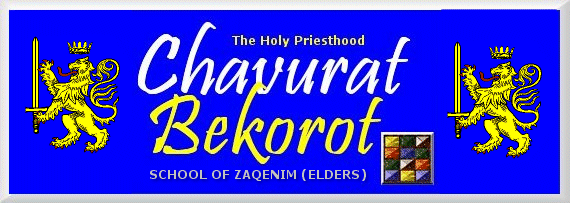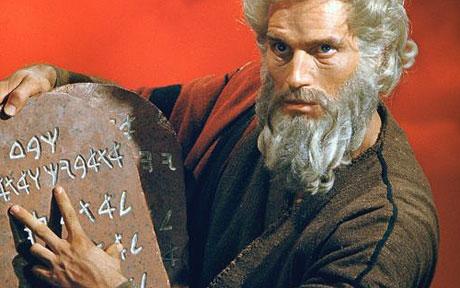RESOURCES
5-144000
A
B
C
D
E
F
G
H
I
J
K
L
M
N
O
P
Q
R
S
T
U
V
W
Y
Z
|
|


3
OLD TESTAMENT ESSAYS
 The Reflection of the Ideas and Teachings of the 10 Commandments in the Religious and Political Experience
The Reflection of the Ideas and Teachings of the 10 Commandments in the Religious and Political Experience
of Moses in Egypt and Sinai
(26 February 1983)
by Christopher C. Warren, M.A.(Oxon)

Moses (Moshe) was born and lived in a particular cultural and historical setting, namely Egypt in the thirteenth century B.C. Though born of Israelite parentage, he was educated as a prince of Egypt, served in the Egyptian army, and in the court of Egypt; and though he must undoubtedly have felt strong blood ties with his Hebrew kin, his outlook, cultural and political, must have been thoroughly Egyptian. He was also educated in the religious polytheism of Egypt and must have been intimately familiar with Egyptian worship and religious philosophy, with all its complexities and rituals.
It was not until Moses was forced to flee from Egypt as the result of his murder of an Egyptian task master that he suddenly found himself uprooted from a developed culture and thrust into the primitive, nomadic ways of the Midianites. We must remember that he lived with Jethro and his family for 40 years, by all accounts a long period of time, during which many of his ideas must have been reshaped. From the comparative luxury of the Egyptian cort, Moses found himself living out a harsh existence as a shepherd in unhospitable countryside. These two vastly contrasting ways of life - luxury in Egypt in a rich culture, and living with the bare necessities in Midian with its primitive culture - must have contributed a great deal to Moses' perception of religion and politics when he was finally commissioned by Yahweh to lead Israel out of Egypt and provide them with a religion and code of living, as epitomised in the Decalogue (Ten Commandments or Devarim)
Sinai must have been very similar to Midian for Moses and therefore the experience there must have helped him reflect back on political and religious life in a semi-settled community like Jethro's.
Egypt was a monarchy, and a dictatorial one at that, as were all monarchies at that time in the Middle East, and it is therefore not surprising that Moses came to view Yahweh in terms of an omnipotent sovereign. Pharaoh was regarded as a god in his own right, though subject to death, it is true. Moses must have wondered about the nature of Yahweh in terms of the 'Egyptian norm' until it was explained to him that Yahweh was a far superior deity to either the Pharaoh or the Egyptian deities themselves. There was nothing temporary about Yahweh - He was actively present everywhere, and particularly in Israel's history as it unfolded. He was not subject to limitations and weaknesses and hence could demand unquestioning obedience.
The Decalogue is divided into two sections:
- 1. The way in which man (and in particular, Israel) is to relate to Yahweh-Elohim (God); and
- 2. The way in which man is to relate to his fellow man.
I shall treat these two areas separately.
1. Man to Elohim
The first four of the ten commandments clearly define this relationship. Israel is to have no other gods (elohim = supreme powers, authorities, deities, masters, etc.) but Yahweh. Egypt, as we have already seen, was swarming with gods, sometimes each village having its own god, each animal, each crop, and so on. Egypt was effectively pantheistic (nature-worshipping). Yahweh's first revelation in the Decalogue is that there is only one controlling force in nature and history, and that was, and is, Yahweh. He was supreme and alone. There is no definitive denial of other gods in the Decalogue but monotheism is implied. And since there is only one Elohim (God), the whole heart and mind must be focussed on Him.
Each Egyptian deity had an image, sometimes human in appearance, sometimes part human and part animal. A great deal of time and religious effort was consumed in building and worshipping these costly artefacts, the effects of which were to build up superstition and teach the people nothing. No doubt there must have been several reasons for images being prohibited in the Israelite Covenant. Firstly, no image of Yahweh could nearly approximate Him and would therefore do Him discredit, and secondly, once Yahweh came to be represented in image form, He would soon be reduced in status to equality with the other Egyptian and Middle Eastern deities. Thus by prohibiting image-making, Yahweh was stressing His superiority ovetr pagan deities and indicating His transcendental power power which no mortal could begin to appreciate. Because of this supremely divine nature, His Name was to be respected at all times as well; the same reverence was accorded pagan deities in pagan society.
The fourth commandment wa something quite new to the religious scene, as far as we know. The Sabbath was intimately bound up with the Hebrew view of creation. In the creation story the observance of the seventh day, or sabbath, as a day of rest is related to Yahweh's resting, or desisting from His work, after the six days of creation. This is the reason given by Moses for keeping the sabbath and it is in keeping with the idea of an actively present and creative Elohim (God). In a sense, Israel has become a part of Yahweh and therefore must act like Him. He is now their parent or Father and He must be imitated by His adopted sons and daughters.
2. Man to Man
A harmonious life depends uptimately on a correct relationship between Yahweh's children as between Yahweh and man. Commandments 5-10 are not by any means unique to Israel although they were not so clearly specified and bound up in religious observance in other societies as they were in Israel. It is rue that these commandments were generally stricter than the morals Moses must have been brought up in. Egyptians placed great emphasis on the family and loyalty and obedience to parents was expected, as it was in most societies at that time. Murder was generally legislated against in most Middle Eastern cultures though perhaps not always regulated as well as it should have been. Adultery was certainly abused in Moses' day and indeed encouraged in such places a Canaan where sensual worship was part of the religious pattern. Yahweh had a great deal to say about the regulation of sexual activities, the seventh commandment being a summary of this sexual code. This commandment alone set Israel apart from most religious systems of the time. Theft was regulated against in most societies and is nparticularly treated in the famous Code of Hammurabi which gained in use in most places in the Middle East, though being somewhat adapted. Moses must have been familiar with this Code for we find traces of it in the Pentateuch. Though most likely he came to know know of it in Egypt, he must also have come across it in Midian and Sinai. The law of false witness was, of course, generally abused in most cultures and was not an invention of Israel. The law of not coveting was a wholly new innovation, though, and was designed to strike at the roots of Israel's spiritual life.
Yah'shua (Jesus) summarised the Decalogue into two simple principles (Mt.22:37-39):
- 1. Love Yahweh only, and love Him with all your mind, might and strength; and
- 2. Love your fellow man as you would love youself.
The meaning in Yah'shua's day, though perhaps more clearly understood than in Moses', was nevertheless the meaning Yahweh wanted to get across to Israel. Moses was born in a selfish, decadent, and corrupt age. There must have been much political intrigue in the courts of Egypt, all of which the young Moses must have observed. In Sinai Moses got firsthand experience of human nature in a different situation - carnal appetite, lack of faith, murmuring, and so on. As Moses absorbed what was going on around him in Egypt and abroad (according to Josephus he was involved in military campaigns in Ethiopia) he must have slowly begun to appreciate the human condition and its needs. With the revelation of the burning bush these ideas must have begin to crystalise out as Yahweh distilled new truths upon his mind. Pure truth or revelation is adapted to the time, history and environment in which it speaks, and Moses was chosen as the representitive of that time and culture. The Decalogue, along with the rest of the Sinai revelations, is the mind of Yahweh spoken through the thirteenth century B.C, but in such a way as to be universally applicable in any age. And He used a human mind, Moses, to achieve that revelation. How He did this in the end may never clearly be known - at least, we shall not know from the Old Testament alone. And whilst one can see the way in which Moses' cultural background intrudes into the Decalogue and the rest of the Sinai Covenant, there is within these ten principles something of an eternal nature which not even culture can dilute. The Decalogue is short on adjectives, like Psalm 23, and is therefore easily understood. It is a great testimony of Yahweh's claim to be the world's Sovereign Master.



This page was created on 31 July 2009
Updated on 31 July 2009
Copyright © 1987-2009 NCCG - All Rights Reserved

|
|


